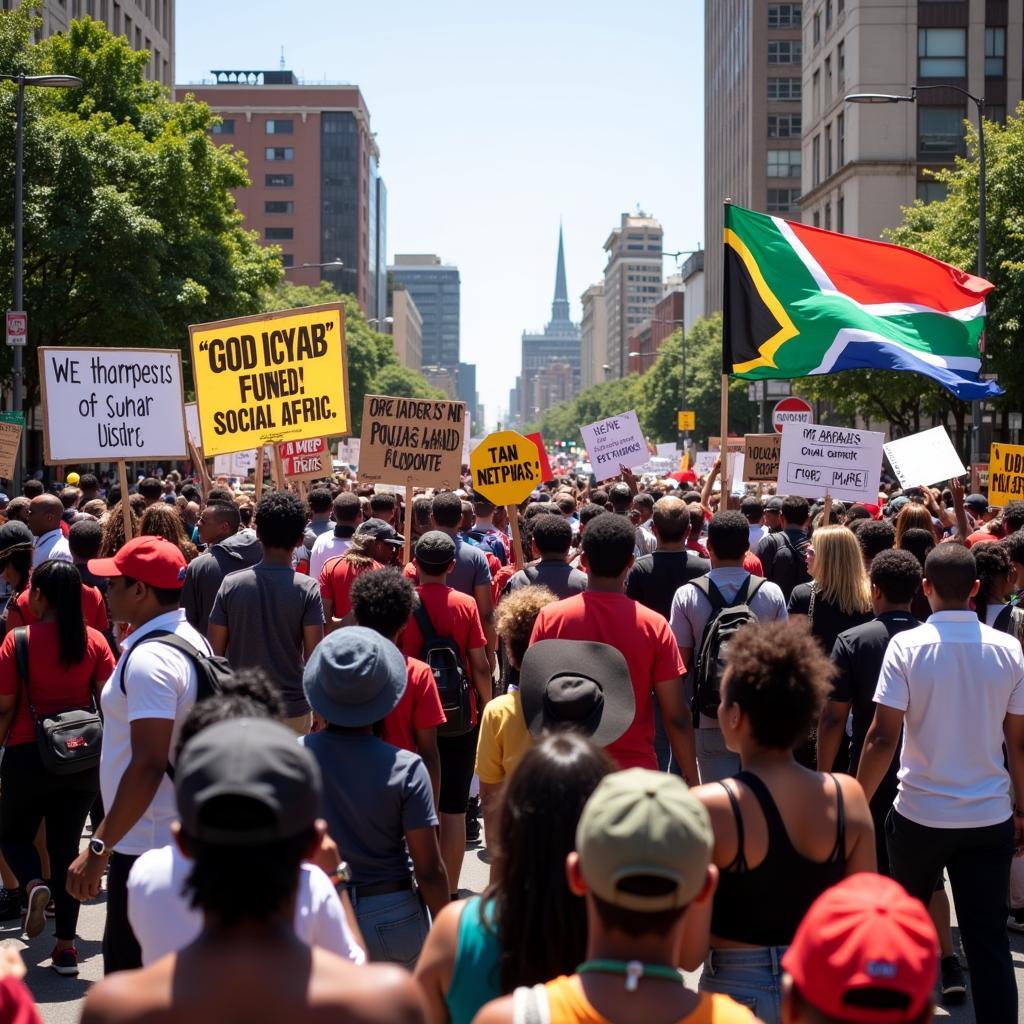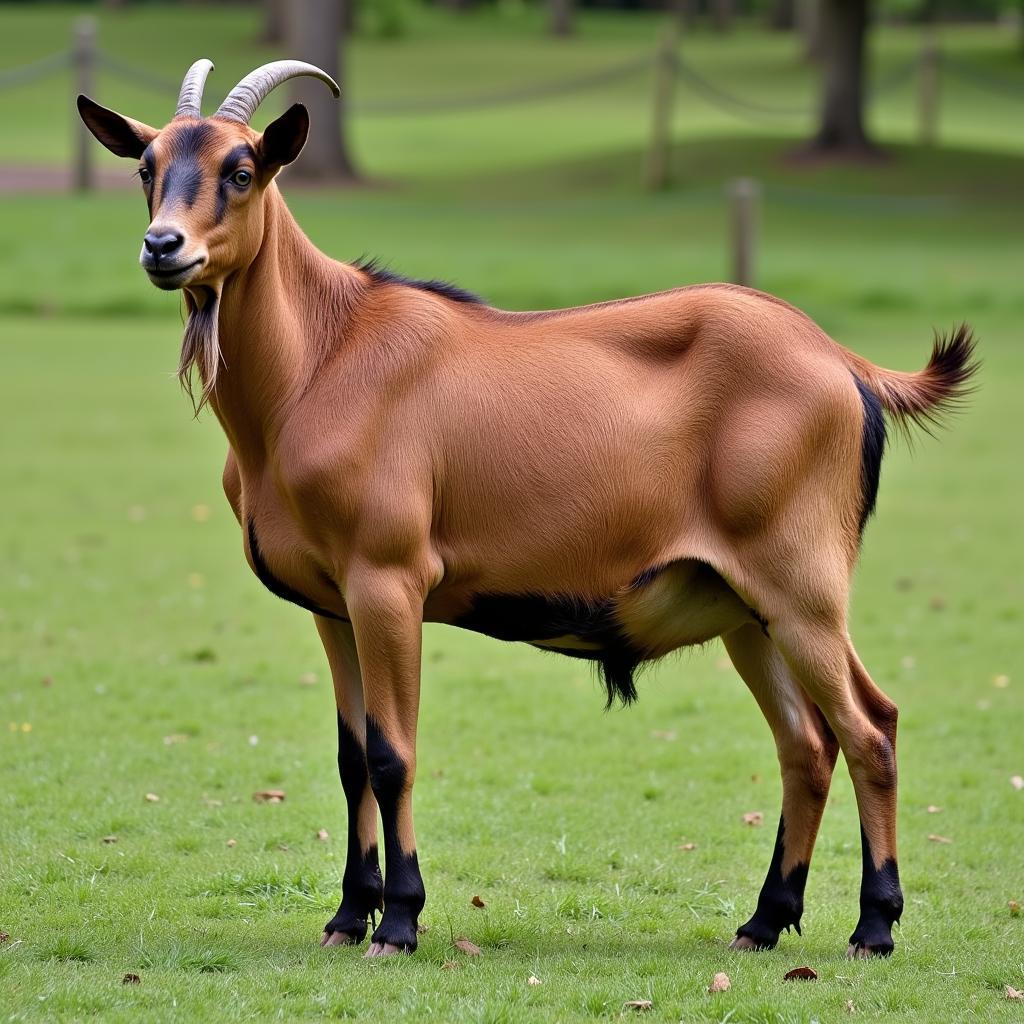Exploring the African God of Thunder: Myths, Legends, and Beliefs
The African God Of Thunder holds a prominent place in numerous cultures across the continent. These deities, often associated with rain, lightning, and storms, embody power and influence the lives of those who believe in their strength. From Shango of the Yoruba to Amadioha of the Igbo, these gods of thunder represent the raw force of nature and the spiritual world. After exploring some of these figures, you might enjoy learning more about African bull head references.
The Varied Faces of the African God of Thunder
Across the diverse landscape of Africa, the concept of the thunder god manifests in various forms. Each culture has its own unique interpretation, reflecting the specific environmental and societal influences at play. This leads to a rich tapestry of myths, legends, and beliefs surrounding these powerful figures. For example, the African god Murugu is a complex figure often associated with blacksmithing and the sky.
Shango: The Yoruba God of Thunder
Perhaps one of the most widely recognized African gods of thunder is Shango of the Yoruba people in Nigeria. Shango, a powerful and charismatic deity, is associated with fire, lightning, and thunder. He is revered as a king and warrior, representing justice and masculinity. Depicted with a double-headed axe, Shango symbolizes swift action and divine authority.
Amadioha: The Igbo God of Justice and Thunder
Another significant thunder god is Amadioha, worshipped by the Igbo people of southeastern Nigeria. Amadioha is associated with justice and righteousness, and his wrath is often manifested through thunder and lightning. He is seen as a protector of the innocent and a punisher of the guilty, ensuring balance and order in the community.
Xevioso: The Dahomey God of Thunder and Lightning
In the kingdom of Dahomey (present-day Benin), Xevioso reigns as the god of thunder and lightning. Closely linked to the creation myths of the Dahomey people, Xevioso is believed to have descended from the sky god, bringing storms and rain to the earth. He is often depicted with a ram’s head, symbolizing virility and strength.
The Role of Thunder Gods in African Society
Thunder gods play a crucial role in various aspects of African society. They are often invoked during times of drought, as their association with rain makes them essential for agricultural prosperity. They also serve as moral compasses, embodying justice and upholding societal norms. Offerings and sacrifices are made to appease these deities and ensure their continued favor. Learning about other deities, like Murugu, can broaden our understanding of African spirituality. Have you ever wondered about African festivals in Trinidad? They often celebrate these rich cultural traditions.
Thunder Gods and Moral Authority
The thunder gods often serve as arbiters of justice and morality. Their power to unleash destructive forces is seen as a manifestation of their ability to punish wrongdoers. This reinforces ethical behavior within the community and serves as a deterrent against transgressions.
Common Misconceptions about African Thunder Gods
It’s important to dispel some common misconceptions about African thunder gods. They are not simply forces of destruction but complex deities with multifaceted roles. They represent both the benevolent and destructive aspects of nature, reflecting the delicate balance that governs the world.
Conclusion
The African god of thunder embodies the power and mystery of the natural world. From Shango to Amadioha and Xevioso, these deities represent a rich tapestry of beliefs and traditions. Understanding their significance provides valuable insights into the cultural and spiritual landscape of Africa. Remember, the African god of thunder plays a crucial role in numerous cultures, impacting beliefs and traditions. You might also find the topic of an African boy scared of lightning of interest.
FAQ
- What are some common attributes of African thunder gods? Power, justice, rain, and lightning.
- Who is Shango? The Yoruba god of thunder.
- What is Amadioha known for? Justice and righteousness.
- Who is Xevioso? The Dahomey god of thunder and lightning.
- Why are thunder gods important in African society? They influence weather, agriculture, and morality.
- Are there other African deities besides thunder gods? Yes, there are numerous deities with diverse roles.
- What are some good African American novels for high school students? This question is beyond the scope of this article.
Scenarios
- Scenario: A farmer praying for rain during a drought might invoke the thunder god to bring much-needed rainfall.
- Scenario: A community seeking justice for a wronged individual might call upon the thunder god to punish the perpetrator.
Further Exploration
Consider exploring other African deities and their roles in various cultures. Research the impact of these beliefs on contemporary African societies.
For assistance, contact us:
Phone: +255768904061
Email: kaka.mag@gmail.com
Address: Mbarali DC Mawindi, Kangaga, Tanzania.
We have a 24/7 customer service team.


